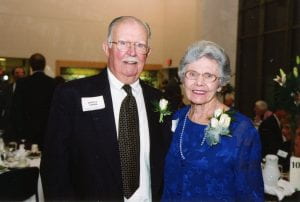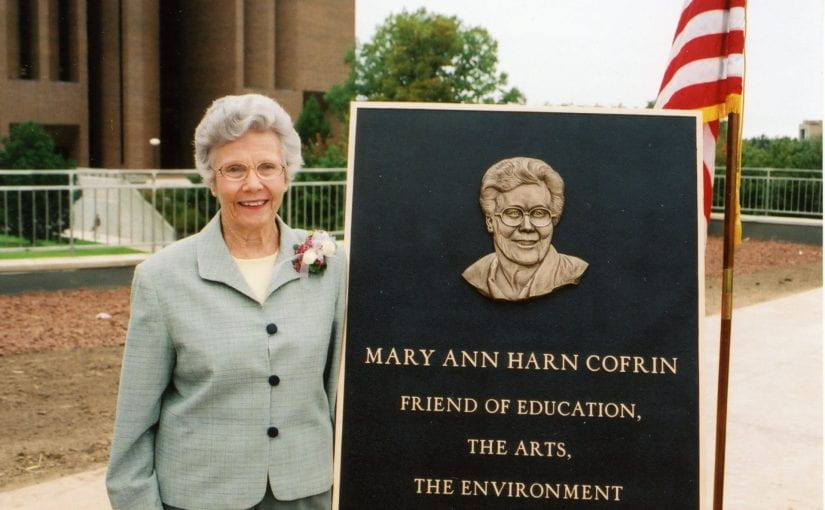The son of an entrepreneur and successful business owner, Dr. David Cofrin and his wife, Mary Ann, saw that Northeast Wisconsin would benefit from access to higher education, and specifically, development of business-minded leaders at UW-Green Bay.
A generous gift to establish the Austin E. Cofrin School of Business in 2010 received a major boost in 2022 with a $3 million bequest after the passing of Mary Ann Cofrin. The bequest puts a flourish on top of a legacy of support for higher education dating to the founding of UW-Green Bay in 1965.
Thanks to Cofrins’ gifts during their lifetime and after, more opportunities have been created for students in the School of Business, including more than 60 business-related events each year such as guest speakers, company tours and pitch competitions, as well as access to expert educators and an Entrepreneur-in-Residence.
“We’ve been able to offer experiential learning opportunities for students,” Dornbush said. “Our students learn by doing — they have a lot of hands-on opportunities. We also have a strong commitment to entrepreneurism inspired by Austin E. Cofrin.”
Austin E. Cofrin founded Fort Howard Paper Co. in Green Bay in 1919. The company, now known as Georgia Pacific Corp., became one of the nation’s largest producers of disposable paper products like toilet paper, napkins and paper towel.
In honor of his father’s well-known and respected business and work ethic, David Cofrin established the Austin E. Cofrin School of Business Endowed Chair, and then established the School of Business in his name.

The couple’s generosity to UW-Green Bay was prolific including more than $22 million to UW-Green Bay to support the development of the Cofrin Memorial Arboretum, The Weidner Center, the David A. Cofrin Library, a three-level academic building bearing Mary Ann Cofrin’s names, and more.
The bequest, however, emphasizes the couple’s admiration for the family patriarch, adding to their vision of a business school to serve Northeast Wisconsin. An estimated 70 percent of graduates from the Cofrin School of Business work in the region.
Dornbush said the funding also allows the college to attract and retain high-quality staff and faculty. The school’s faculty and staff also have opportunities to expand their own skills and knowledge. “The Cofrin funds have allowed us to do that,” he said.
“The Cofrins were one of the families who helped build Green Bay. Without that entrepreneurial spirit, Green Bay wouldn’t be the city it is today, and neither would the University.”


